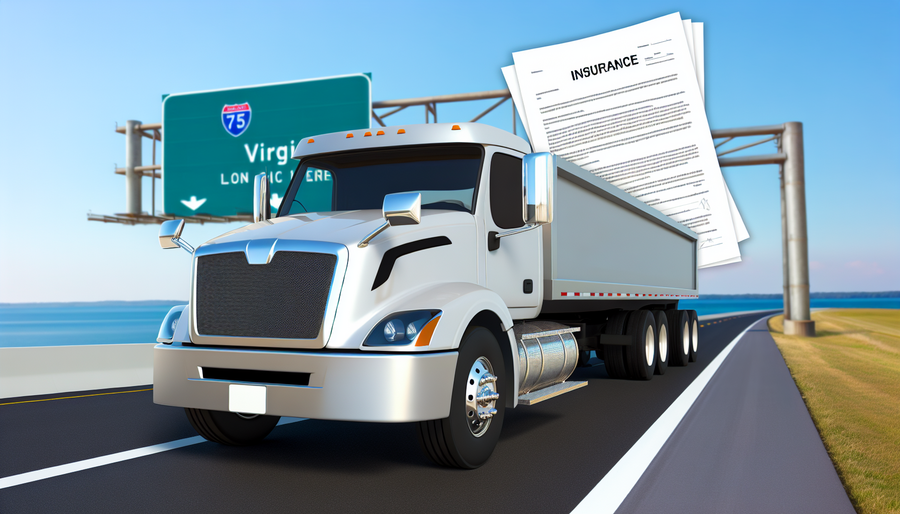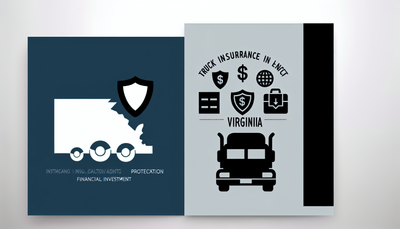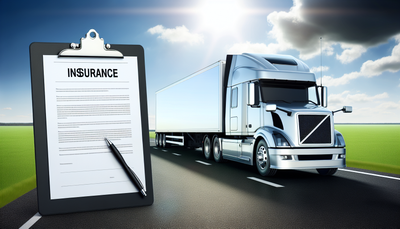Is Your Work Truck Fully Covered? Understanding Commercial Policies in Virginia

Is Your Work Truck Fully Covered? Understanding Commercial Policies in Virginia
If you own or operate a work truck in Virginia, having the right insurance coverage isn’t just about compliance—it’s about protecting your business, your livelihood, and yourself. Whether you're hauling equipment across the state or making daily deliveries in Richmond, understanding commercial insurance policies is a must-have knowledge for any truck owner.
Why Standard Auto Insurance Isn't Enough
Many business owners mistakenly assume that their personal auto insurance will cover their work truck. Unfortunately, that’s not the case. Once a vehicle is used for business purposes, standard policies typically exclude coverage. That means if you’re using your truck for work—transporting tools, delivering goods, or even driving between job sites—you need commercial insurance.
Key Components of a Commercial Policy
A commercial vehicle policy offers several components that go beyond what you’d find in a regular auto policy:
- Liability Coverage: Covers injury or damage you cause to others while operating your work truck.
- Physical Damage Coverage: Includes collision and comprehensive protection for your vehicle.
- Uninsured/Underinsured Motorist Coverage: Protects you if another driver is at fault but lacks adequate insurance.
- Medical Payments Coverage: Covers medical expenses for you and your passengers.
- Cargo and Equipment Coverage: Especially important in trades where valuable tools or materials are transported.
State Requirements for Commercial Vehicles in Virginia
In Virginia, commercial trucks are subject to specific legal requirements depending on the size and use of the vehicle:
- Vehicles over 10,000 lbs GVWR used for business must have a USDOT number and thus require commercial insurance.
- For-hire carriers (like freight haulers) may need additional filings such as Form MCS-90.
- The minimum liability limits vary based on the type of cargo and vehicle weight. For example, a truck transporting hazardous materials will need significantly more coverage than a landscaping vehicle.
It's crucial to consult with an insurance provider familiar with Virginia regulations to ensure full compliance.
Choosing the Right Coverage for Your Work Truck
Not all commercial policies are created equal. Factors like your industry, vehicle type, and daily mileage can greatly influence your policy needs. Here are a few tips to make sure your work truck is fully covered:
- Assess Your Risks – Consider what could go wrong on the road, at job sites, or while loading/unloading.
- Work With a Specialist – Choose an insurance agent experienced in commercial truck policies.
- Review Annually – As your business grows, your insurance needs may change.
Common Mistakes to Avoid
- Underinsuring: Opting for the lowest coverage to save money can cost you dearly in the event of a claim.
- Missing Coverage Types: Forgetting to add cargo or equipment coverage could leave gaps.
- Incorrect Classification: Misclassifying your truck’s use can void coverage.
Conclusion
Ensuring your work truck has the proper commercial insurance in Virginia is essential. It not only keeps you compliant with state laws but also shields you from potentially devastating financial losses. Don’t wait until something goes wrong—review your policy coverage today and confirm that your work truck is fully protected.
For a personalized assessment or quote, contact a local agent who understands Virginia's commercial vehicle requirements. Your business depends on your truck—make sure it's covered from every angle!








